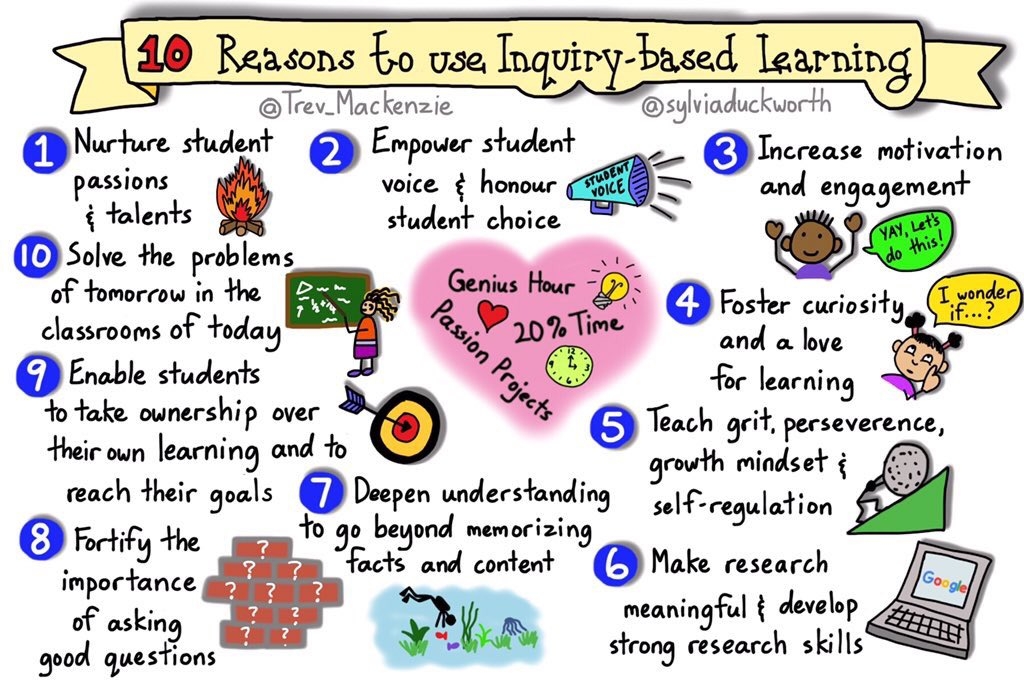
Using Phenomena, Provocations, and Passion to design learning experiences that are personally relevant to our students increases engagement, is more equitable, and closes achievement gaps. Watch this seven-minute segment of our interview with Trevor MacKenzie, educator and author of Dive into Inquiry and Inquiry Mindset, where he addresses the topic of inquiry and equity.
Inquiry and project-based learning (PBL) are intertwined. In the article “Why All Students Deserve PBL – and Why Some Don’t Get It” from PBL Works, John Larmer says,
“Students who have been historically underserved by our education system are especially in need of the authentic engagement that comes with PBL when teachers design projects that speak to students’ lives, cultures, and identities. Just telling these students to work hard on assignments that seem irrelevant to their lives ‘because you’ll need this later’ is not going to cut it. Schoolwork should be meaningful to them now.”
But how do we begin to make the shifts toward providing more personalized, relevant learning experiences in classrooms and environmental education programming? First, read these companion articles about inquiry:
- Getting Started with Inquiry
- Developing Relationships to Support Inquiry
- Phenomena, Provocations, and Passion
Second, take an inventory of what your current programming or curriculum. Where are the opportunities for growth? Are there lessons that are not engaging? Do you have specific student populations you haven’t been reaching? Figure out where you where to begin integrating more student-centered inquiry.
Third, identify professional learning opportunities to help you get started. Sign up for a book study. Participate in a Twitter chat. Ask a colleague to collaborate with you. Enroll in a workshop. There is really no limit to the possibilities.
Finally, as you embark on this journey toward more equitable education, give yourself permission to be ok with the messiness that comes with developing new skills. There will be moments of joy. There will be questions. There will be times when you find out what not to do. These are all opportunities for learning.
Share your thoughts or get feedback in our educator community.
Victoria Rydberg, Guest Writer
Wisconsin Department of Public Instruction
Environmental Education and Service-Learning
Advertising Disclosure: Please note that we may use affiliate links to retailers which yield a commission for us at no extra cost to you. We only recommend products we've used that support our mission. As an Amazon Associate FIELD Edventures earns from qualifying purchases. Your purchases support taking learning outdoors.
